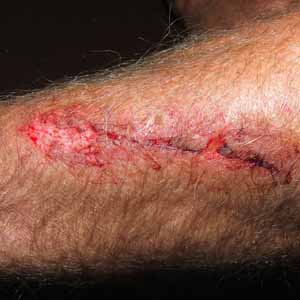 Smart Citations
Smart CitationsSee how this article has been cited at scite.ai
scite shows how a scientific paper has been cited by providing the context of the citation, a classification describing whether it supports, mentions, or contrasts the cited claim, and a label indicating in which section the citation was made.
Maggot therapy could provide affordable and efficacious wound care in Lebanon and other low- and middle-income countries
The poor economic situation, ongoing political instability, and the 2020 Beirut explosion have seriously eroded the capacity of the Lebanese healthcare system. Insecure fuel supplies and the rationing of electricity to a few hours per day make matters worse. New strategies are required to deliver healthcare that is more resilient in the face of ongoing disruption. Maggot therapy for the treatment of chronic and infected wounds could make a meaningful difference in Lebanon. When placed in a wound, medicinal maggots remove dead tissue, control infection and stimulate wound healing. It is an inexpensive, easy to use, and highly efficacious therapy, even under austere conditions. This review provides an introduction to maggot therapy and briefly explains its therapeutic benefits before discussing the role it can play in the Lebanese healthcare system. Finally, the prerequisites and enablers for successful integration of maggot therapy into the Lebanese healthcare system are outlined.
Downloads
How to Cite

This work is licensed under a Creative Commons Attribution-NonCommercial 4.0 International License.

 https://doi.org/10.4081/hls.2023.11161
https://doi.org/10.4081/hls.2023.11161





